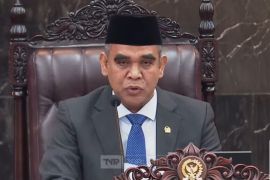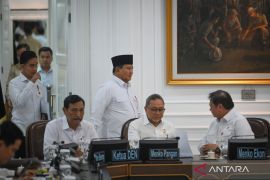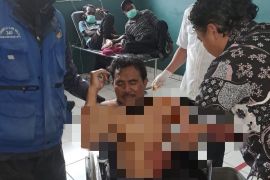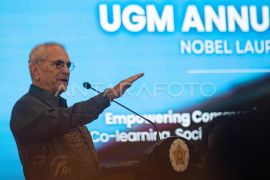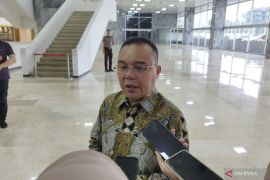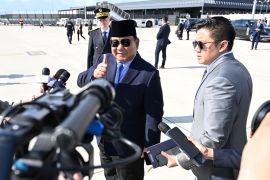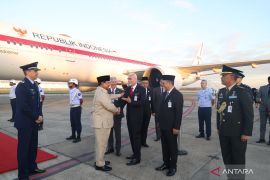Chairman of the House of Representatives (DPR) Setya Novanto lauded all the figures involved in the peace negotiation process between the Red-White Coalition and Great Indonesia Coalition.Jakarta (ANTARA News) - The Red-White Coalition and the Great Indonesia Coalition agreed to resolve their differences on Monday after inking an agreement at the parliament building.
The agreement was signed by the representatives from the two conflicting parties: Hatta Rajasa and Idrus Marham from the Red-White Coalition and Parmono Anung and Olly Dondokambay from the Great Indonesia Coalition.
"This agreement is signed to simplify our duty as lawmakers in the future. So now, there will be no coalition, we are all a family," Chairman of the House of Representatives (DPR) Setya Novanto remarked while opening the signing ceremony event on Monday.
Setya lauded all the figures involved in the peace negotiation process between the Red-White Coalition and Great Indonesia Coalition.
"What is more important is that we will maintain our relations with the executive power (president and his ministers) professionally and proportionally," Setya noted.
As reported earlier, the Indonesian parliament was divided during the past weeks due to dual leadership. The Red-White Coalition, which supported Prabowo Subianto and his running mate Hatta Rajasa in the presidential election on July 9, had won the leadership of the House Commissions following an election during which, the Great Indonesia Coalition that supported the Joko Widodo-Jusuf Kalla pair did not participate. However, the Great Indonesia Coalition fully dominates the executive power.
The Great Indonesia Coalition comprising the Indonesian Democratic Party of Struggle (PDIP), the National Democrat Party (Nasdem), the Nation Awakening Party (PKB) and the Peoples Conscience Party (Hanura) then formed a rival DPR leadership with Pramono Anung being elected as the chairman of the shadow parliament.
The rift in the parliament has also been a rising concern among the public and investors who are worried about its effects on the functioning of the Indonesian government. (*)
Editor: Heru Purwanto
Copyright © ANTARA 2014
